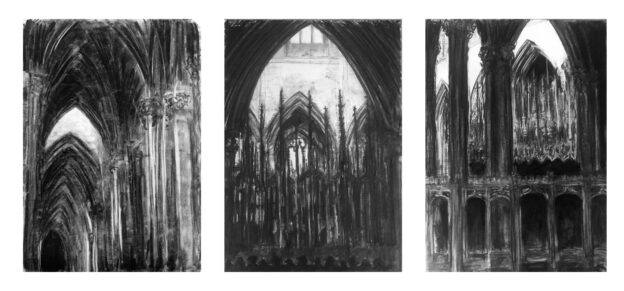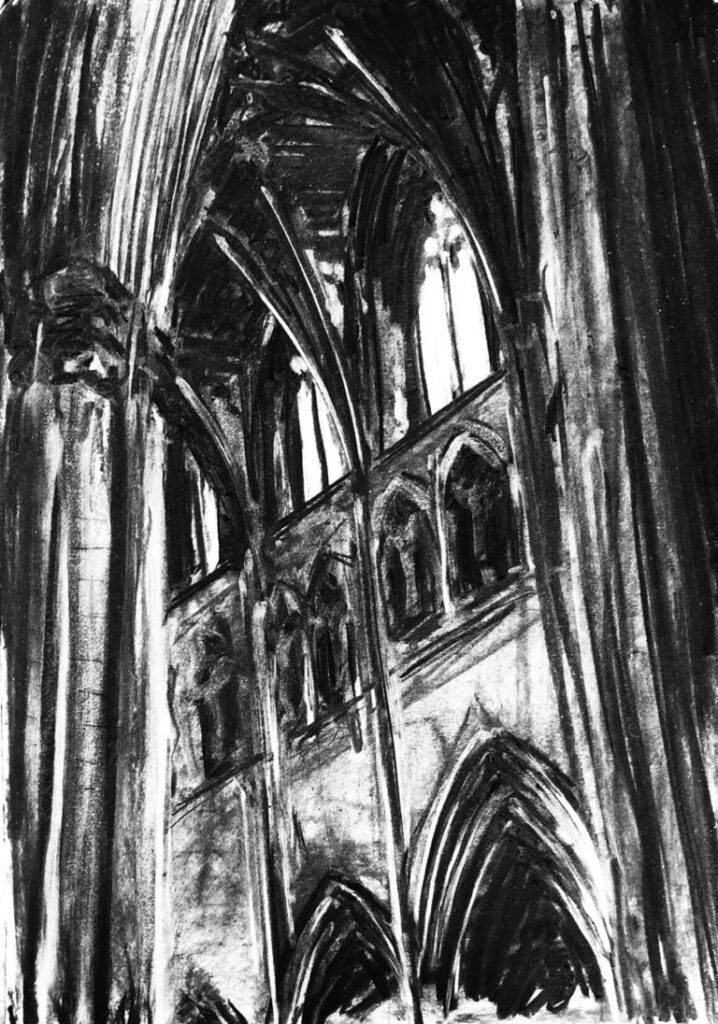By Richard D.G. Irvine
The listlessness that comes from staring at the same set of walls, as the days seep into one another. Difficulty summoning any interest or energy to do anything – in fact, the sense that there’s very little point getting out of bed in the first place. Inertia. From a monastic perspective such struggles echo in history.
Back in April, Fr David Foster, a Benedictine monk I met years ago during my PhD fieldwork at Downside Abbey, and now teaching at the Pontifical University of Sant’Anselmo in Rome, described the sharp shifts in emotion as Italy struggled with the wave of COVID-19 infection. The sudden decision to close places of learning feeling almost like an unexpected holiday; excitement quickly engulfed by the fear and uncertainty about the situation, anxiety of risk from the infection and grief amidst the rising deathtoll. And then lockdown. “Now, inevitably, it has begun to shift to a kind of stale boredom. Cassian of course had just the word for it – acedia. Yesterday I just went to the end of the drive, simply to look outside and enjoy (really enjoy) the sight of the wisteria in the road. That is the real pity – to miss the spring colours and smells.”
His words capture the feeling of constraint even within the monastery grounds; while monks might be thought of as experts in self-isolation, life for Benedictines is not typically one of total confinement to the enclosure. Yet in recognising and naming the struggle – this “stale boredom” which so many of us have been confronted with – what was striking was the way in which he reached back into the history of the monastic experience. John Cassian, born around 360AD, compiled and digested the teachings of those ‘desert monks’ who had withdrawn from society to live lives of prayer on the Nile Delta. In his Institutes he describes the dejection and weariness that was a frequent foe of the monks, and was denoted by the Greek word ‘acedia’ – the word itself might be translated as ‘lack of care’, though the struggle itself is a complex state that’s hard to pin down. He also explains that some monks associated it with the ‘midday demon’ described in the psalms they chanted (Psalm 91(90)) refers to “the scourge that lays waste at noon”).
The despondency of midday, when time feels motionless and directionless, is most vividly described by the monk Evagrius Ponticus, a key influence on Cassian: “First it makes the sun appear to slow down or stop, so the day seems to be fifty hours long. Then it forces the monk to keep looking out the window and rush from his cell to observe the sun in order to see how much longer it is to the ninth hour, and to look about in every direction in case any of the brothers are there. Then it assails him with hatred of his place, his way of life and the work of his hands.” This description resonates with the sluggishness of time in lockdown, the frustration and torpor of days with no end in sight.
Though I am currently on lockdown myself in Scotland, I have been taking the opportunity to connect online and on the phone with my friends from Downside Abbey, a community of Catholic Benedictine monks in South West England. Since the suspension of public church services as part of the effort to prevent the spread of COVID-19, the community have massively expanded their social media outreach as an effort to build connections with those who can no longer physically visit the monastery. (I have written about this outreach here.) A key part of this has been an attempt to offer support and spiritual resources to people who find themselves in the unprecedented situation of lockdown. As one monk explained, the audience that they had in mind was precisely “people asking themselves, what on earth am I going to do? … there’s a very real danger with that sense of confinement and isolation”.
A healing service broadcast live from the monastery on youtube and Instagram focussed directly on the ‘inner wounds’ of those struggling in lockdown. “We pray for those suffering from despondency and a sense of aimlessness, constrained as they are sometimes in very tight conditions”, dejected by circumstances that “seem, as it were, to be indefinite as well as unlimited”. Here again we are in the presence of the ‘midday demon’: a crushing sense of the monotony of directionless time and unvarying space, making it hard to keep purpose and meaning in sight.


